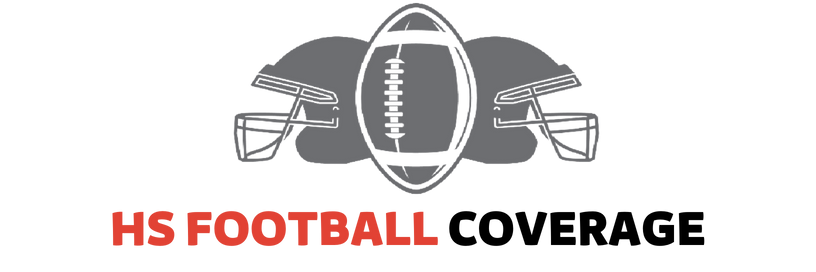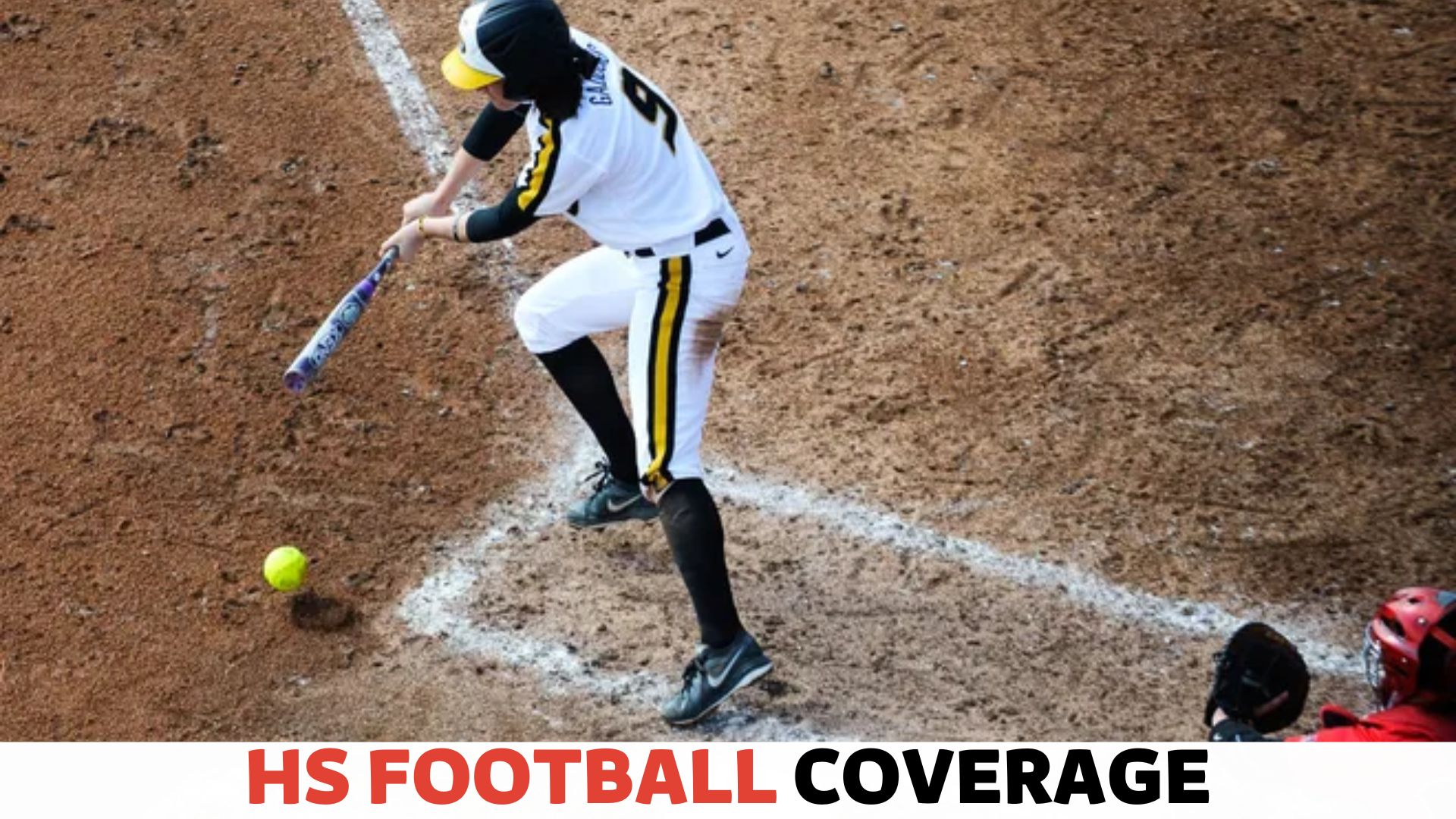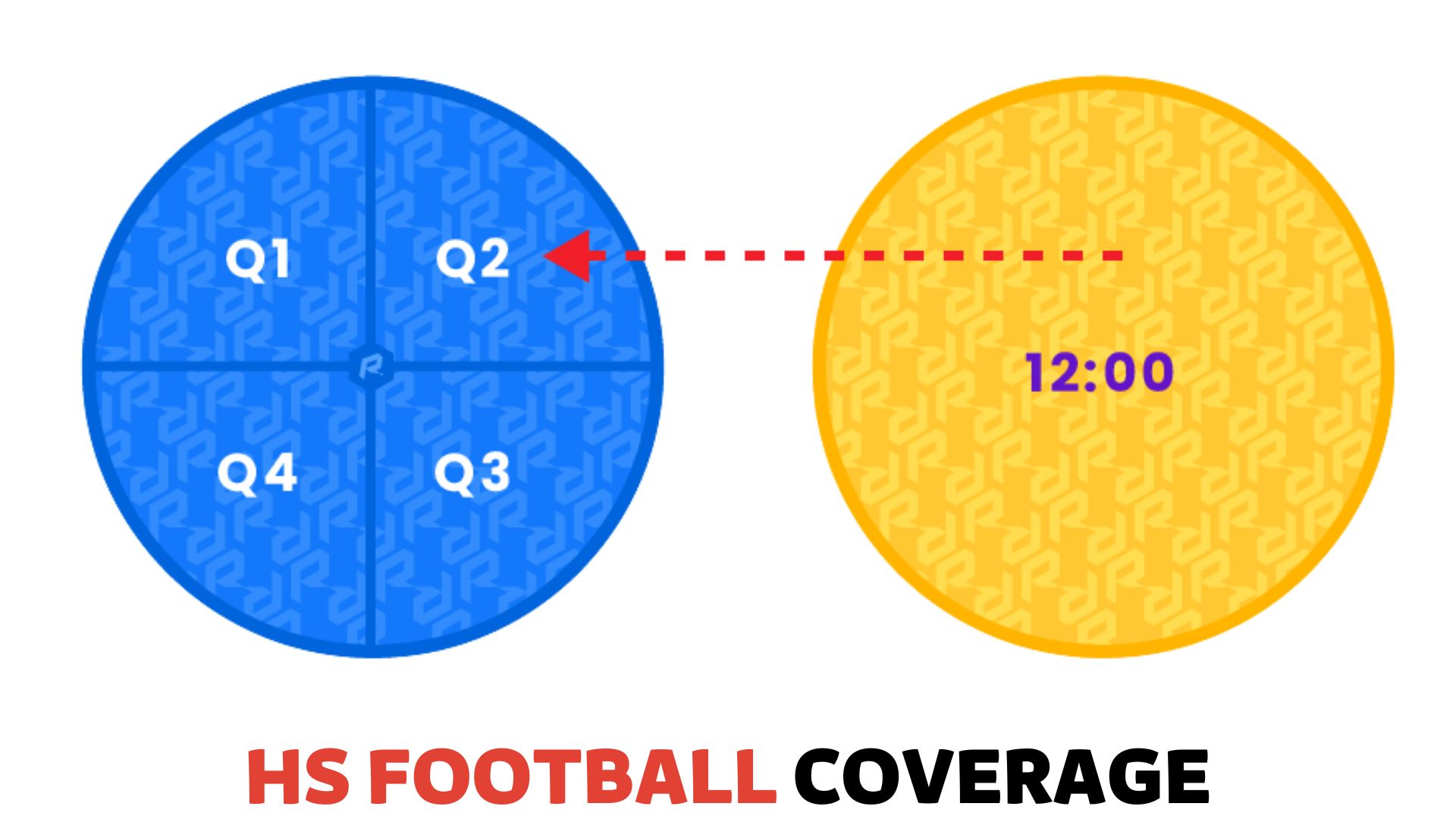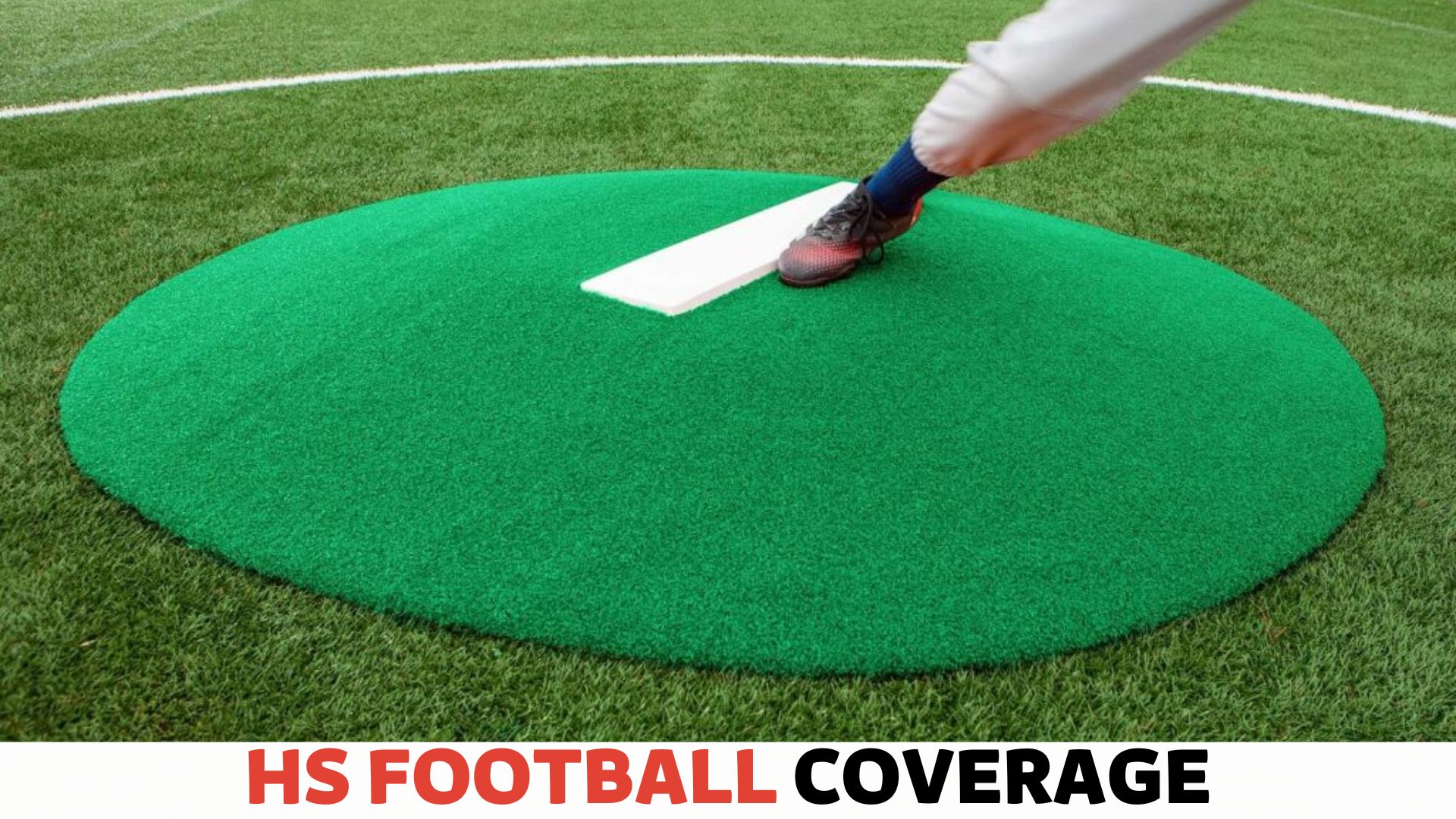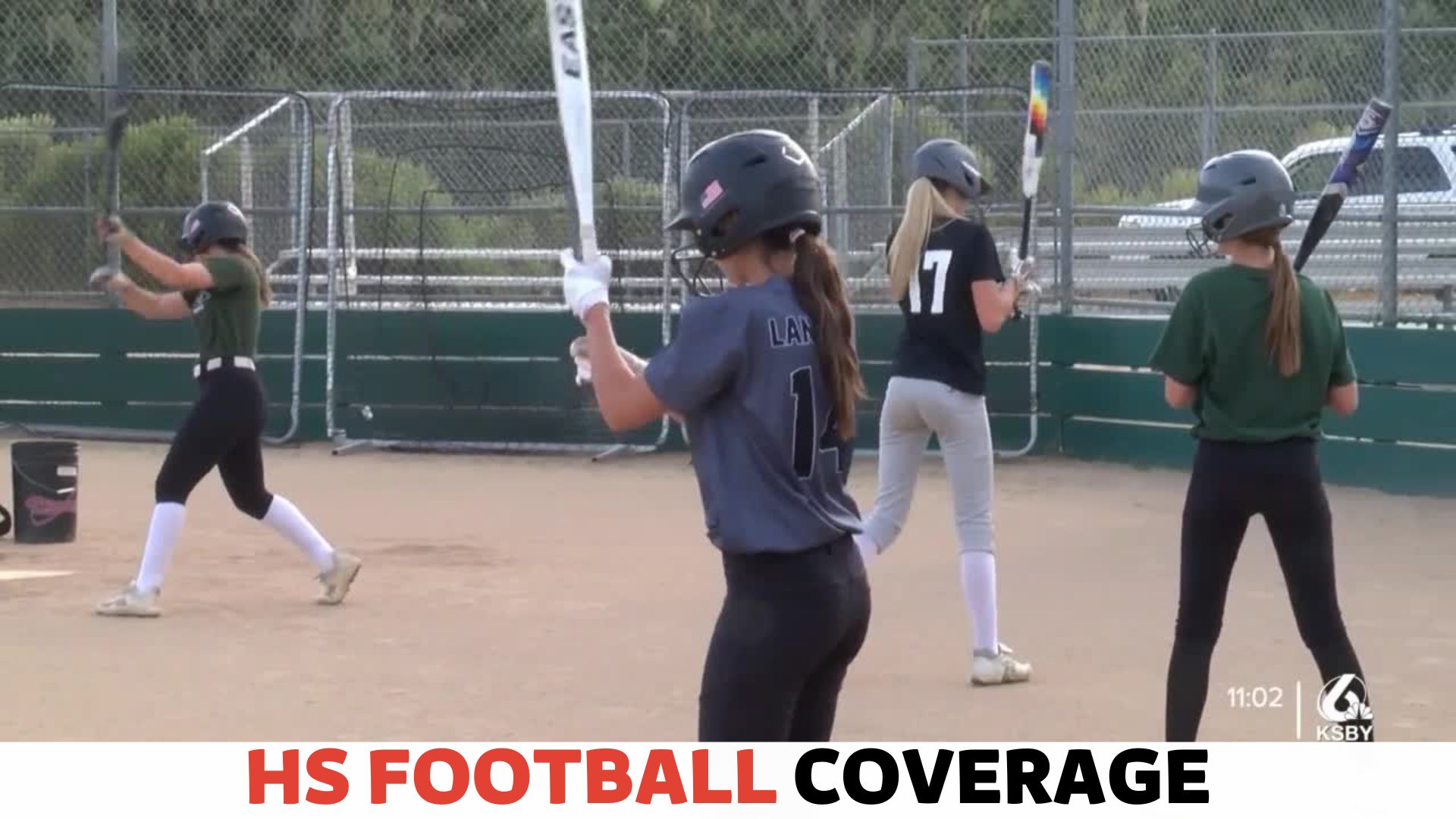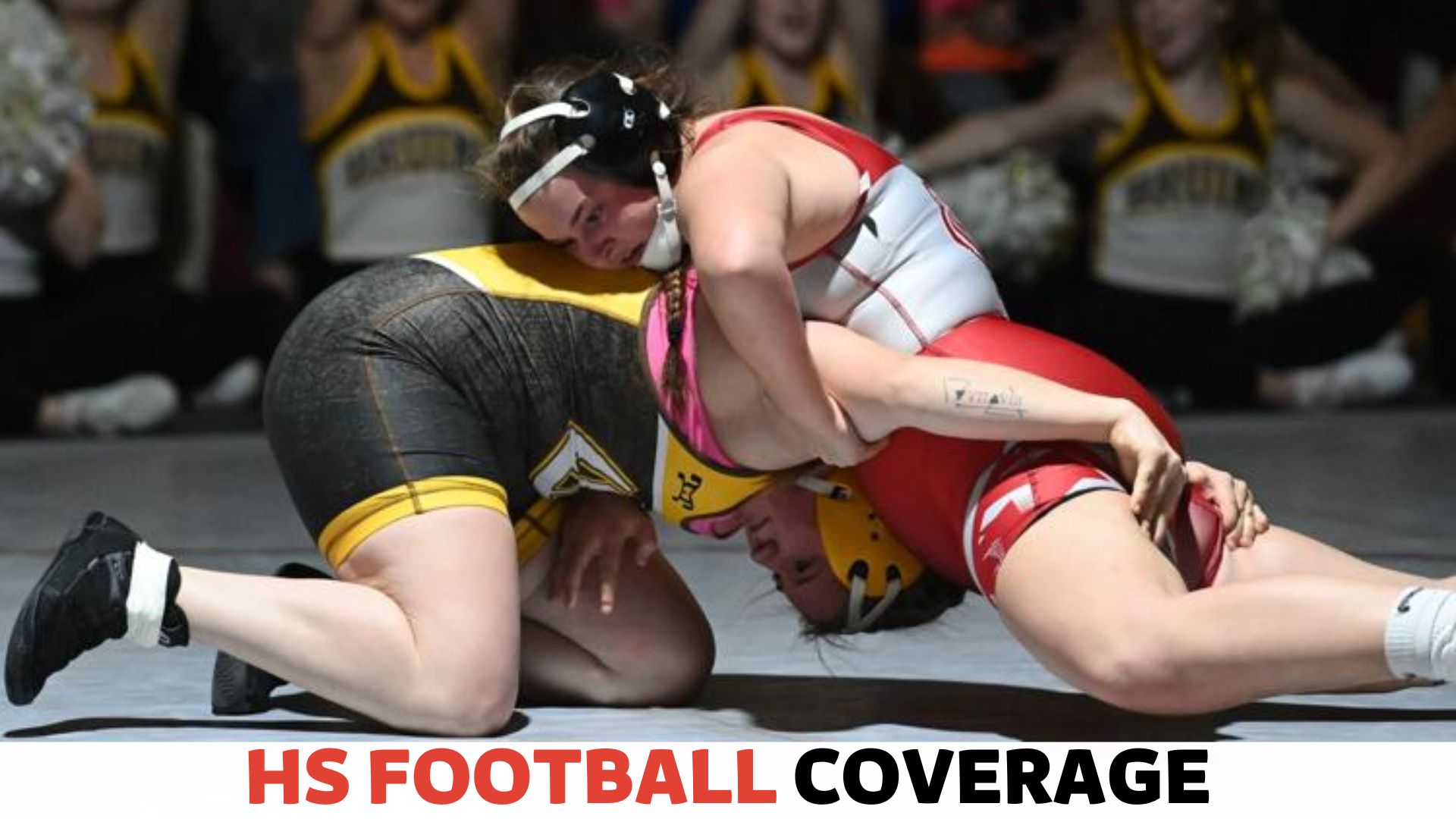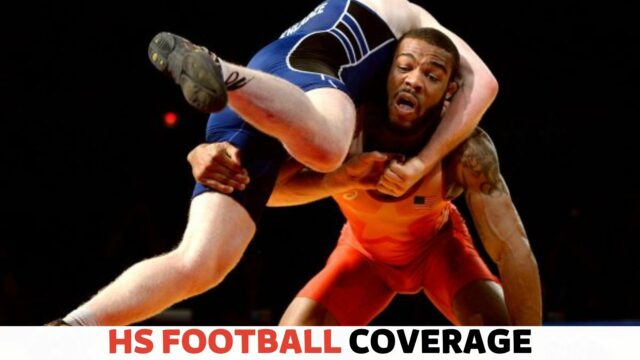
To become a high school wrestling coach, you must meet the requirements set by your school district and obtain the necessary coaching certifications. Introduction (120 words): Becoming a high school wrestling coach is fulfilling and rewarding for those passionate about the sport.
As a coach, you have the unique opportunity to shape and guide the development of young athletes in a competitive environment. However, before stepping onto the mat as a coach, you must meet the specific requirements set by your school district and obtain the necessary coaching certifications.
These requirements typically include completing an approved coaching education program, passing background checks, and obtaining first aid and CPR certifications. Additionally, some districts may require previous coaching or wrestling experience.
Once you have met these requirements, you will be well-prepared to embark on your journey as a high school wrestling coach, providing mentorship, training, and guidance to your athletes as they strive for excellence on and off the mat.
Understanding the Role of a Wrestling Coach
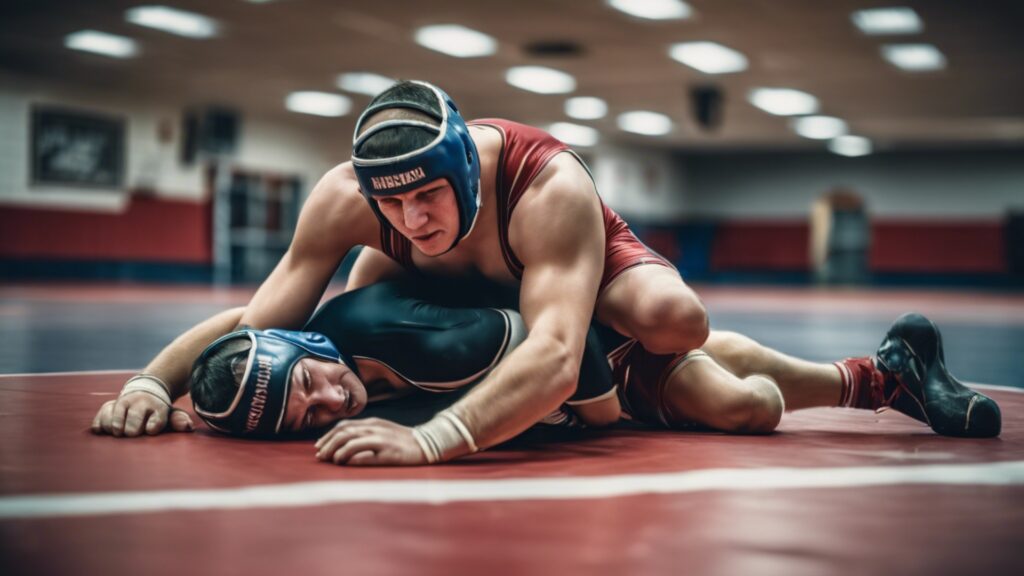
A high school wrestling coach is crucial in guiding and mentoring student-athletes. They provide training, strategize game plans, and inspire teamwork. If you aspire to become a wrestling coach, gaining extensive knowledge about the sport and developing strong leadership skills are essential.
Importance of a Wrestling Coach in a High School
A wrestling coach plays a crucial role in developing high school athletes. They are responsible for guiding and training the team members and instilling discipline, resilience, and teamwork.
With their expertise and guidance, a wrestling coach can shape the minds and bodies of student-athletes, helping them achieve their full potential both on and off the mat.
Their presence is vital in creating a supportive and competitive environment that fosters growth, self-confidence, and a sense of community among the wrestlers.
Responsibilities and Expectations of a High School Wrestling Coach
The responsibilities of a high school wrestling coach extend far beyond just teaching wrestling techniques. They are in charge of designing and implementing training programs, organizing practice sessions, evaluating the performance and progress of individual wrestlers, and strategizing for matches and tournaments.
Additionally, they must ensure the safety and discipline of the team, work closely with other coaches, manage administrative tasks, and serve as a mentor and role model for the athletes.
The expectations for a wrestling coach are high, as they are accountable for the team’s success and each athlete’s overall development and well-being.
Skills and Qualities Needed to Become a Successful Wrestling Coach
Becoming a successful wrestling coach requires a unique set of skills and qualities. Firstly, a thorough understanding of the sport itself is essential. This includes knowledge of various wrestling techniques, rules, and strategies.
Practical communication skills are also crucial, as coaches must be able to convey instructions and provide feedback to the athletes clearly and concisely. Patience, adaptability, and the ability to handle pressure are invaluable traits that enable coaches to navigate challenges and setbacks.
Furthermore, leadership, organization, and the ability to motivate and inspire athletes are vital characteristics that contribute to the success of a wrestling coach.
The Impact of Coaching on the Development of Student-athletes
Coaching plays a significant role in the holistic development of student-athletes. Beyond honing their wrestling skills, it helps shape their character, instill discipline, and foster personal growth. Coaches provide guidance and support, teaching valuable life lessons such as perseverance, resilience, and teamwork.
The impact of coaching extends beyond the wrestling mat as athletes learn to apply these skills in academic settings, relationships, and future endeavors.
A coach’s mentorship and guidance can leave a lasting impression on the lives of the athletes, empowering them to overcome challenges, set and achieve goals, and become well-rounded individuals.
In conclusion, the role of a wrestling coach in a high school goes far beyond simply teaching the sport. They are responsible for the development of student-athletes, both physically and mentally.
Their expertise, guidance, and mentorship help shape the wrestlers into resilient, disciplined, and well-rounded individuals. As they undertake the responsibilities and expectations of a coach, their skills and qualities significantly impact the growth and development of the athletes.
Coaches play a vital role in the success of the team and the personal development of the student-athletes they mentor.
Gaining Experience in Wrestling
In becoming a high school wrestling coach, gaining experience in the sport is crucial. Not only does it provide you with the necessary skills and knowledge to be an effective coach, but it also helps you build credibility and earn the respect of your wrestlers.
In this section, we will explore three ways to gain experience in wrestling: participating in wrestling as a student-athlete, joining wrestling clubs or organizations, and assisting experienced coaches or mentors. Let’s dive in!
Participating in Wrestling as a Student-athlete
One of the best ways to gain experience in wrestling is by participating in the sport yourself as a student-athlete. This firsthand experience allows you to grasp the fundamentals of the sport, hone your skills, and understand the mental and physical demands of wrestling.
By actively engaging in wrestling matches and practices, you can gain valuable insights that will benefit you when coaching. You can learn from your coaches and observe their coaching techniques as a student-athlete.
Pay close attention to how they communicate with the team, strategize for matches, and motivate their wrestlers. Take note of any effective methods they use and incorporate them into your coaching style in the future.
Joining Wrestling Clubs or Organizations
Another way to gain wrestling experience is by joining clubs or organizations. These groups provide a supportive and collaborative environment where you can train with experienced athletes and coaches. Participating in club practices and competitions can further develop your wrestling skills and broaden your understanding of the sport.
Joining a wrestling club also allows you to network with others who share your passion for wrestling. Through these connections, you may have the opportunity to learn from established coaches and mentors who can guide you on your coaching journey. They can provide valuable advice, share their experiences, and help you refine your coaching techniques.
Assisting Experienced Coaches or Mentors
Assisting experienced coaches or mentors is a fantastic way to gain hands-on experience and learn from seasoned professionals. You’ll gain invaluable insights into the intricacies of coaching wrestling by offering to help in practices, assisting during matches, and learning from their coaching strategies.
When working alongside experienced coaches, pay attention to their coaching methods, motivational techniques, and approaches to skill development.
Observe how they communicate with individual wrestlers and the team as a whole. Take note of their strengths and incorporate these practices into your coaching style while retaining your unique approach.
Additionally, mentoring relationships can provide guidance and support as you progress in your coaching career. Receiving feedback, discussing different coaching philosophies, and seeking advice from mentors can help shape your coaching style and enhance your overall effectiveness.
Remember, gaining experience in wrestling is a continuous process. Continually challenging yourself, seeking new opportunities, and remaining open to learning from others will help you become a highly skilled and respected high school wrestling coach.
Obtaining the Necessary Education and Certification
The education and certification is crucial to becoming a high school wrestling coach. By pursuing a degree in physical education or a related field, understanding the coach certification requirements by state or organization, and obtaining first aid and CPR certifications, you can equip yourself with the knowledge and skills needed to succeed in this challenging role.
Pursuing a Degree in Physical Education or Related Field
Earning a degree in physical education or a related field is an excellent foundation for aspiring high school wrestling coaches. It provides a solid understanding of the human body, exercise science, and sports coaching techniques.
Through coursework and practical experiences, you can develop a more profound knowledge of anatomy, physiology, kinesiology, and motor skills.
This knowledge forms a solid basis for effective coaching and ensures you are well-versed in athletic training and development principles.
Understanding the Coach Certification Requirements By State or Organization
It is essential to familiarize yourself with the certification requirements for coaching wrestling in your specific state or organization. Each state may have its own set of prerequisites and regulations.
Some states require coaches to complete specific coaching courses, while others mandate passing background checks. Specific organizations, such as USA Wrestling, offer coaching certification programs that can enhance your knowledge and credibility in the field.
By understanding these requirements, you can take the necessary steps to meet them and ensure you comply with the regulations.
Receiving First Aid and CPR Certifications
As a wrestling coach, the safety and well-being of your athletes should always be a top priority. Obtaining first aid and CPR certifications is vital to handling any injuries or emergencies that may arise during practices or competitions.
These certifications equip you with the skills to administer immediate care and potentially save lives. Many organizations and institutions offer first aid and CPR courses, typically involving classroom learning and practical training.
Completing these certifications demonstrates your commitment to creating a safe and secure environment for your wrestlers and instills confidence in the athletes and their parents.
Developing Coaching Skills and Techniques
Looking to become a high school wrestling coach? Enhance your coaching skills and techniques with valuable tips and strategies in this comprehensive guide. Boost your expertise and make a positive impact on your team’s performance.
Studying Wrestling Techniques and Strategies
As a high school wrestling coach, becoming well-versed in the various wrestling techniques and strategies used in the sport is essential. By studying and expanding your knowledge in these areas, you will be better equipped to train and guide your wrestlers effectively.
To begin, devote time to understanding the fundamental techniques, such as takedowns, escapes, and pinning combinations. Familiarize yourself with various holds, grips, and footwork patterns.
Explore different styles of wrestling, including freestyle, Greco-Roman, and folkstyle, to gain a comprehensive understanding of the sport’s nuances.
Stay updated with the latest trends and developments by following wrestling publications, blogs, and forums. Regularly watch high school and professional wrestling matches to analyze different approaches and strategies employed by successful wrestlers and coaches.
Attending Coaching Clinics and Workshops
Attending coaching clinics and workshops is a fantastic way to enhance your coaching skills and stay abreast of new coaching methods and techniques. These events provide opportunities for networking with experienced coaches and learning from their wealth of knowledge and experience.
When researching coaching clinics and workshops, seek those tailored explicitly to wrestling coaching. Choose events that cover a wide range of topics, such as practice planning, match strategy, strength and conditioning, injury prevention, and sports psychology. Look for clinics led by renowned coaches who have succeeded in their respective programs.
Use interactive sessions and hands-on activities to participate and practice different coaching techniques actively. Engage in collaborative discussions and ask questions to clarify doubts or seek advice from the experts.
Additionally, consider joining coaching associations or organizations that offer resources, mentorship programs, and opportunities for further growth in your coaching career.
Learning Effective Communication and Teaching Methods
Effective communication and teaching methods are vital when coaching high school wrestlers. Your ability to convey information and instructions clearly and concisely will significantly impact your wrestlers’ understanding and retention of the techniques and strategies you teach.
One key aspect of effective communication is establishing a positive and supportive coaching environment. Create a space where wrestlers feel comfortable asking questions and seeking clarification. Offer constructive feedback and praise their efforts to motivate and inspire them to improve.
Implement a variety of teaching methods to accommodate different learning styles. Utilize visual aids, such as videos and diagrams, to demonstrate specific techniques.
Incorporate hands-on practice sessions, allowing wrestlers to experience and experiment with the techniques physically. Break down complex moves into smaller, more manageable steps to facilitate better understanding and mastery.
Lastly, encourage open communication with your wrestlers by actively listening to their concerns, ideas, and feedback. Foster a solid coach-athlete relationship based on trust, respect, and empathy.
You can effectively guide and develop each wrestler’s skills and potential by continually refining your communication and teaching methods.
Engaging With School Administration and Athletic Department
Engaging with school administration and the athletic department is crucial for aspiring high school wrestling coaches. Building relationships and showcasing your passion and expertise can increase your chances of securing a coaching position and positively impacting the wrestling program.
Understanding the Role of the Athletic Director in the Hiring Process
Becoming a high school wrestling coach is an exciting journey but requires more than just a passion for the sport. Engaging with the school administration and athletic department is crucial to position yourself as a strong candidate.
Understanding the role of the athletic director is the first step in this process. The athletic director oversees the school’s athletic program, including hiring coaches.
So, to increase your chances of becoming a wrestling coach, it’s essential to establish a positive relationship with the athletic director. Showcasing your skills, experience, and commitment is vital to get noticed and considered for the position.
Building Relationships With School Administrators and Staff
Building relationships with school administrators and staff is crucial in becoming a high school wrestling coach. These relationships demonstrate your ability to work well with others and help you gain support and endorsement from those with a say in the hiring process.
Start by attending school events and introducing yourself to administrators and staff members. Be genuine, enthusiastic, and eager to learn about the school’s values, goals, and traditions. Show your dedication to the sport by volunteering to help with wrestling-related activities and supporting other athletic programs.
Engaging in conversations and demonstrating your willingness to contribute to the school’s overall success can leave a lasting impression on administrators and increase your chances of being considered for the coaching position.
Showcasing Your Passion and Dedication to Wrestling
To become a high school wrestling coach, showcasing your passion and dedication to the sport is essential. This is not just about your technical skills as a coach but also your commitment to the development and well-being of student-athletes.
Demonstrate your knowledge of the sport, including rules, regulations, and current trends. Emphasize your coaching philosophy, highlighting how you prioritize character development, teamwork, and individual growth.
Share success stories from your previous coaching experiences and highlight the positive impact of wrestling on your athletes’ lives. Consider creating a portfolio that showcases your achievements, certifications, and any accolades you have received in the wrestling community.
By showcasing your passion and dedication, you will leave no doubt in the minds of school administrators and the athletic department that you are the ideal candidate for the high school wrestling coach position.
Engaging with school administration and the athletic department is crucial to becoming a high school wrestling coach.
Understanding the role of the athletic director, building positive relationships with school administrators and staff, and showcasing your passion and dedication to wrestling are all critical factors in positioning yourself as a strong candidate for the job.
By implementing these strategies, you can increase your chances of being hired and ultimately contribute to the success and growth of the school’s wrestling program.
Preparing for the Interview
Prepare for your high school wrestling coach interview by researching the role, studying the sport’s rules, and familiarizing yourself with coaching techniques and strategies.
Be ready to communicate your passion for wrestling and your ability to develop athletes’ skills and foster a positive team environment.
Preparing for the Interview
When it comes to becoming a high school wrestling coach, preparing for the interview is crucial in landing the job. This is your opportunity to showcase your knowledge, passion, and experience in the sport.
To ace the interview, research the school’s wrestling program and history, highlight your coaching philosophy and approach, and provide examples of successful coaching experiences.
Researching the School’s Wrestling Program and History
Before the interview, take the time to research the school’s wrestling program and history thoroughly. This will demonstrate your genuine interest in the position and the school’s specific needs. Researching the following aspects will help you stand out:
- Check the school’s website for information about the wrestling program, past achievements, and coaching staff.
- Look for recent news articles or social media posts about the team’s successes or challenges.
- Contact current or former wrestlers or coaches from the school to gain additional insights.
Highlighting Your Coaching Philosophy and Approach
During the interview, one of the key points you should emphasize is your coaching philosophy and approach. This is your chance to showcase your unique coaching style and how it aligns with the values and goals of the school’s wrestling program. Here are some points to consider:
- Outline your coaching philosophy concisely and clearly. What are your core beliefs about developing athletes on and off the mat?
- Discuss your approach to individualized coaching. How do you tailor your coaching methods to meet the needs of each student-athlete?
- Highlight your commitment to building a positive team culture and fostering a supportive and inclusive environment for all wrestlers.
Providing Examples of Successful Coaching Experiences
To further impress the interviewers, provide specific examples of successful coaching experiences from your past. This could include:
- Highlight any championship titles or significant achievements from teams or individual wrestlers you have coached.
- Sharing success stories of athletes who have demonstrated remarkable growth under your guidance.
- Discuss any challenges you faced as a coach and how you overcame them to achieve positive outcomes.
Remember to focus on the outcomes and impact you have had as a coach. Concrete examples will showcase your coaching abilities and provide evidence of your potential to succeed in the role.
In conclusion, preparing for the interview as a high school wrestling coach requires thorough research, clear articulation of your coaching philosophy, and providing examples of successful coaching experiences.
By following these guidelines, you’ll be well-equipped to impress the interviewers and increase your chances of landing the job. Good luck with your interview!
Demonstrating Your Coaching Abilities
As a high school wrestling coach, it is essential to demonstrate your coaching abilities to the school administration and the wrestlers. Showing you have the skills and knowledge to lead and guide the team is crucial to gaining their trust and respect.
Here are some key areas where you can showcase your coaching abilities:
Planning and Conducting Productive Practices
One of the primary responsibilities of a wrestling coach is to plan and conduct productive practices that help the team improve their skills and performance.
By designing structured and purposeful practice sessions, you can ensure the wrestlers make the most of their training time. To effectively plan practices,
consider the following:
- Divide the season into phases: Start by dividing the season into phases, focusing on different aspects of wrestling, such as technique, strength and conditioning, and match preparation.
- Set clear goals: Establish specific goals for each practice session, whether it’s working on specific moves, improving endurance, or developing mental toughness.
- Organize drills and exercises: Create a diverse set of drills and exercises that target different aspects of wrestling, including technique, agility, and strategy.
- Monitor progress: Regularly evaluate the progress of your wrestlers and provide feedback to help them identify areas for improvement and track their growth.
Developing a Comprehensive Training Program for Wrestlers
In addition to planning practices, you should develop a comprehensive training program encompassing various aspects of wrestling training. This program should cover technical skills, physical conditioning, and mental preparation.
Consider the following steps when developing the training program:
- Assess individual strengths and weaknesses: Evaluate each wrestler’s strengths and weaknesses to customize their training program and address specific areas that need improvement.
- Create a periodized training plan: Divide the training program into phases, focusing on developing different physical attributes and skills over time.
- Incorporate strength and conditioning exercises: Include exercises that improve strength, speed, agility, and endurance, ensuring they are relevant to the demands of wrestling.
- Implement mental training techniques: Teach wrestlers strategies to build mental resilience and focus, such as visualization, goal setting, and overcoming adversity.
- Regularly review and adjust the program: Continuously monitor the effectiveness of the training program and make necessary adjustments to optimize performance.
Leading and Motivating the Team to Achieve Success
As a wrestling coach, you are responsible for leading and motivating the team to succeed individually and collectively. To effectively lead and inspire your wrestlers, consider the following strategies:
- Create a positive and supportive team culture: Foster an environment that promotes teamwork, respect, and a strong work ethic. Encourage camaraderie and create opportunities for team bonding.
- Set high standards and expectations: Communicate your expectations and goals to the team, challenging them to strive for excellence in practice and competition.
- Provide constructive feedback: Offer specific, actionable, and supportive feedback. Recognize and highlight improvements while also addressing areas that require attention.
- Celebrate successes: Acknowledge and celebrate individual and team achievements, no matter how small, to boost morale and motivate your wrestlers to keep pushing forward.
- Lead by example: Demonstrate dedication, discipline, and a strong work ethic. Your actions will inspire your wrestlers to follow suit.
Creating a Structured Seasonal Plan
When coaching a high school wrestling team, creating a well-structured seasonal plan is one of the most crucial aspects to ensure success. This plan is a roadmap for the entire season, guiding coaches and athletes towards their goals.
Within this plan, several critical components need careful consideration and implementation. This article will explore the importance of setting goals and objectives for the season, designing a practice schedule and workout routines, and incorporating periodized training for optimal performance.
Setting Goals and Objectives for the Season
Setting clear goals and objectives is the foundation of any successful wrestling season. These goals provide focus, direction, and motivation for both the coach and the athletes. When setting goals, it is essential to make them specific, measurable, attainable, relevant, and time-bound (SMART).
Here are some steps to follow:
- Identify the main objectives for the season, such as winning a certain number of matches, qualifying for specific tournaments, or improving overall team performance.
- Break down these objectives into smaller, measurable goals that can be achieved within a set timeframe.
- Communicate the goals to the team and individual athletes, ensuring everyone is on the same page and committed to reaching these targets.
Designing a Practice Schedule and Workout Routines
A well-designed practice schedule and workout routines are essential for developing the skills and physical conditioning needed to excel in wrestling.
Here are some steps to consider:
- Create a weekly practice schedule that includes technical training, strength and conditioning workouts, and competitive drills.
- Allocate sufficient time for warm-up exercises, skill development, live wrestling sessions, and cool-down activities.
- Ensure a balance between individual and team-focused training to address personal improvement and team cohesion.
- Periodically review and adjust the practice schedule based on performance and athlete feedback.
Incorporating Periodized Training for Optimal Performance
Periodized training is a systematic approach that divides the wrestling season into specific periods or phases, each with its training focus. This approach allows for progressive improvement, peak performance during essential competitions, and optimal recovery.
Here are the critical components of periodized training:
- Off-season: Focus on strength, stamina, and conditioning through weight training, cardiovascular exercises, and cross-training activities.
- Pre-season: Shift the training focus towards refining wrestling techniques and mental preparation and gradually increase the intensity and duration of workouts.
- In-season: Fine-tune skills, maintain peak condition, and ensure proper recovery between matches or tournaments.
- Post-season: Allow for adequate rest and recovery, reflect on the season, and set new goals for the next season.
By incorporating periodized training, coaches can optimize the athletes’ performance while minimizing the risk of overuse injuries or burnout.
Cultivating a Positive and Supportive Team Culture
As a high school wrestling coach, one of your primary responsibilities is to create a positive and supportive team culture. The atmosphere you establish will directly impact the performance and well-being of your athletes.
By fostering a sense of unity, promoting sportsmanship, and setting clear expectations, you can create an environment where your wrestlers thrive and develop as athletes and individuals.
Establishing Team Values and Expectations
Establishing clear values and expectations is one of the first steps in cultivating a positive team culture. These values should align with the principles of your school, promoting respect, integrity, and hard work.
Begin with your team and define your season’s core values. This could be a collaborative process where each athlete contributes their ideas. Once you have identified these values, communicate them clearly to your team and ensure they understand the importance of upholding them.
A great way to reinforce these values is by creating a team handbook. This document can outline the behavioral expectations, practice schedule, competition protocols, and any other relevant information.
Ensure every team member receives a copy of the handbook and reviews it to clarify questions or concerns. Setting these expectations from the start establishes a foundation for a positive team culture where everyone is held accountable.
Promoting Sportsmanship and Fair Play
Promoting sportsmanship and fair play is crucial to fostering a positive and supportive team culture. Emphasize to your wrestlers that winning is not solely defined by their record but by how they conduct themselves both on and off the mat.
Encourage respectful behavior towards opponents, coaches, and officials, emphasizing the importance of good sportsmanship.
One effective way to encourage sportsmanship is by creating a code of conduct for your team. This code can outline the expected behavior during matches, the consequences for unsportsmanlike conduct, and guidelines for post-match interactions.
Discussing this code with your athletes, ensuring they understand it, and reinforcing its importance throughout the season creates an environment where sportsmanship and fair play are valued.
Fostering a Sense of Unity and Camaraderie Among Team Members
A positive team culture is built on unity and camaraderie among team members. As the coach, it’s your role to foster this sense of togetherness. Encourage your wrestlers to support and uplift one another during training and competitions.
One way to cultivate unity is by organizing team-building activities. These can range from fun games and challenges to off-the-mat activities encouraging bonding and trust.
During these exercises, emphasize the importance of teamwork and remind your athletes that they are stronger together. Encourage them to celebrate each other’s successes and provide support during challenging times.
To strengthen the team members’ bond, consider assigning training partners who can push and motivate one another. This fosters a sense of camaraderie and creates a supportive environment where wrestlers can strive to reach their full potential.
In conclusion, cultivating a positive and supportive team culture requires clear communication, established values, and a commitment to sportsmanship.
Promoting unity and camaraderie among team members creates an environment where your wrestlers can thrive and develop as individuals and athletes.
Remember, the culture you create will directly impact the success and well-being of your team, making it an essential aspect of your role as a high school wrestling coach.
Assessing and Developing the Individual Athlete
Assessing and developing the individual athlete is essential for becoming a high school wrestling coach. This involves identifying strengths and weaknesses, designing personalized training plans, and providing guidance to enhance overall performance.
Evaluating Wrestlers’ Skill Levels and Areas for Improvement
When it comes to becoming a high school wrestling coach, one of the most critical aspects of your role is assessing and developing the individual athlete.
Evaluating wrestlers’ skill levels and identifying areas for improvement is crucial to helping them reach their full potential on the mat. By understanding each wrestler’s strengths and weaknesses, you can tailor your coaching approach to address their specific needs.
You can use observation, analysis, and feedback to evaluate wrestlers’ skill levels. Watching their performance during practice sessions and matches allows you to assess their technical abilities, physical fitness, and mental resilience.
Take note of their takedown techniques, defensive skills, pinning abilities, and overall mat awareness.
Table: Skills Evaluation Matrix
| Skill | Level | Areas for Improvement |
|———————|————–|—————————-|
| Takedown Techniques | Advanced | Defense against leg attacks |
| Defensive Skills | Intermediate | Counter attacks |
| Pinning Abilities | Beginner | Breakdowns and rides |
| Mat Awareness | Advanced | Escapes from bottom |
Based on your evaluation, you can then identify specific areas for improvement. This could involve working on fundamental techniques, refining existing skills, or introducing advanced strategies.
By focusing on their weaknesses, you can help wrestlers develop a well-rounded skill set and improve their overall performance.
Providing Personalized Coaching and Feedback
As a high school wrestling coach, it is essential to provide personalized coaching and feedback to each individual athlete. Every wrestler is unique and requires tailored guidance to maximize their potential.
By adopting a customized coaching approach, you can address your wrestlers’ specific needs and learning styles.
When working with wrestlers individually, provide them one-on-one sessions to enhance their skills. Offer personalized drills and exercises that target their weaknesses and reinforce their strengths.
Utilize video analysis to provide visual feedback and highlight areas that require improvement. Additionally, offering constructive criticism and positive reinforcement will help to motivate and inspire wrestlers.
Implementing Effective in-match Strategies
Implementing effective in-match strategies is another crucial aspect of coaching high school wrestlers. You guide and prepare wrestlers to make tactical decisions during a match. You can develop strategies that capitalize on their wrestlers’ abilities by analyzing their opponent’s strengths and weaknesses.
Encourage wrestlers to play to their strengths, using powerful takedowns, defensive counterattacks, or capitalizing on pinning opportunities. Teach them techniques to control the match’s pace, create scoring opportunities, and exploit their opponents’ vulnerabilities.
Additionally, it emphasizes the importance of mental toughness and maintaining focus throughout the game.
By assessing and developing the individual athlete, evaluating skill levels, providing personalized coaching, and implementing effective in-match strategies, you can empower your high school wrestlers to achieve success both on and off the mat.
Through your guidance and support, you can help them grow as athletes, develop valuable life skills, and reach their full potential in wrestling.
Staying Updated on Wrestling Trends and Innovations
As a high school wrestling coach, staying updated on the latest sports trends and innovations is crucial. Keeping yourself informed about new techniques, strategies, and advancements can significantly enhance your coaching abilities and help you guide your team to success.
This section will explore three practical ways to stay updated on wrestling trends and innovations: following professional wrestling associations and publications, attending coaching seminars and conferences, and networking with other coaches for knowledge sharing.
Following Professional Wrestling Associations and Publications
One of the easiest and most convenient ways to stay updated on wrestling trends is by following professional wrestling associations and publications. These resources provide valuable insights into the latest sports developments and advancements.
Regularly checking their websites, subscribing to their newsletters, and following their social media accounts lets you stay informed about upcoming events, rule changes, new training techniques, and more.
Attending Coaching Seminars and Conferences
Attending coaching seminars and conferences is a fantastic way to stay updated on wrestling trends and expand your coaching knowledge and skills.
These events bring together experienced coaches, industry experts, and renowned athletes who share their expertise and insights through informative presentations, practical workshops, and interactive discussions.
By participating in such events, you can learn about the latest training methods, coaching strategies, and cutting-edge technologies that can give your team a competitive edge.
Networking With Other Coaches for Knowledge Sharing
Networking with other coaches is invaluable for staying updated on wrestling trends and innovations. By connecting and building relationships with fellow wrestling coaches, you can exchange ideas, share experiences, and gain insights from their perspectives.
Joining professional coaching associations, participating in online forums and discussion groups, and attending local coaching meetups are excellent ways to expand your coaching network.
Through these connections, you can bounce ideas off one another, ask questions, and keep abreast of the latest trends and innovations in wrestling.
You can provide your team with the best coaching by staying updated on wrestling trends and innovations. Whether it’s through following professional wrestling associations and publications, attending coaching seminars and conferences, or networking with other coaches, never underestimate the power of knowledge and its impact on your coaching career.
Embrace the opportunity to learn and grow continuously, and you’ll soon see its positive impact on your team’s performance.
Reflecting and Learning From Coaching Experiences
Reflect and learn from experience to become a highly effective high school wrestling coach. Gain insights and knowledge on coaching strategies, leadership skills, and techniques to create a winning team. Be constantly evolving and adapting to develop champions on and off the mat.
Reflecting and Learning from Coaching Experiences
Becoming a high school wrestling coach is an exciting journey filled with challenges and learning opportunities. As a coach, your experience and growth are not limited to the time spent on the wrestling mat; they also involve reflecting on your coaching experiences and continuously striving to improve.
You can become an even more effective wrestling coach by analyzing team and individual performance, seeking feedback from wrestlers and coaching colleagues, and constantly adapting coaching methods for improvement.
Analyzing team and individual performance
Analyzing team and individual performance is essential to identify strengths, weaknesses, and areas for improvement. By studying match results, practice sessions, and individual performance metrics, you can gain valuable insights into your team’s and individuals’ performance.
Looking closely at areas such as technique execution, physical conditioning, mental preparedness, and strategic decision-making can help you identify patterns and make data-driven decisions for improvement.
Seeking feedback from wrestlers and coaching colleagues
Feedback is a valuable tool for growth and improvement. As a high school wrestling coach, seeking feedback from your wrestlers and coaching colleagues is crucial. Your wrestlers can offer unique perspectives on their experiences, highlighting areas where they need more guidance or support.
Additionally, discussing coaching strategies and techniques with your colleagues can expose you to new ideas and approaches to enhance your coaching methods. Incorporating feedback into your coaching approach fosters a collaborative and supportive environment that benefits you and your wrestlers.
Continuously adapting coaching methods for improvement.
The wrestling world is constantly evolving, and as a coach, it is essential to stay current with the latest techniques, tactics, and training methods. By continuously researching, attending coaching clinics, and learning from industry experts, you can adapt and refine your coaching methods for improvement.
It is crucial to recognize that what worked in the past may not be as effective now, and being open to change is necessary for growth. Embracing new ideas and incorporating innovative training techniques can help you better meet the needs of your wrestlers and maximize their potential.
Reflecting on your coaching experiences and learning from them is an ongoing process. By analyzing team and individual performance, seeking feedback from wrestlers and coaching colleagues, and continuously adapting coaching methods for improvement, you can become a high school wrestling coach with technical knowledge and the ability to inspire, motivate, and lead your team to success.
Remember, coaching is more than just Xs and Os; it’s about constantly striving to be your wrestler’s best coach. Use these strategies to grow and evolve as a wrestling coach continually.
Building a Supportive Coaching Network
Building a supportive coaching network that provides guidance, experience, and assistance is crucial to thrive as a high school wrestling coach. By engaging with parents, collaborating with school staff and community resources, and creating mentor relationships with experienced coaches, you can establish a strong foundation for your wrestling program.
Engaging With Parents and Involving Them in the Program
Parents play a vital role in the success of any high school wrestling program. You can foster a supportive and collaborative environment by actively engaging with parents.
Here are some strategies to involve parents in the program:
- Organize parent meetings to inform them about the team’s progress and upcoming events.
- Create a parent volunteer program where parents can contribute their skills and time to assist with team activities.
- Encourage parents to attend matches and tournaments to show their support for the team.
- Establish open lines of communication, such as email newsletters or a dedicated webpage, to keep parents updated on important information.
- Recognize and appreciate parents’ contributions by acknowledging their efforts publicly and privately.
Collaborating With School Staff and Community Resources
Collaboration with school staff and community resources can provide additional support and opportunities for your wrestling program.
Here’s how you can collaborate effectively:
- Work closely with athletic directors and school administrators to ensure the program receives funding and resources.
- Build relationships with other coaches in the school to share best practices and coordinate schedules effectively.
- Seek partnerships with local sports organizations and wrestling clubs that can provide training facilities, coaching expertise, and potential recruitment opportunities.
- Involve the school’s marketing or public relations team to promote the wrestling program and attract more students.
- Engage community leaders and local businesses to sponsor events, provide financial support, or offer mentorship programs for aspiring wrestlers.
Creating Mentor Relationships With Experienced Coaches
Establishing mentor relationships with experienced coaches can immensely benefit your personal growth and the development of your wrestling program.
Consider the following steps:
- Reach out to successful wrestling coaches in your area or network to express your interest in learning from them.
- Attend coaching clinics, workshops, and conferences to connect with experienced coaches and gain valuable insights.
- Ask for advice, guidance, and feedback from more seasoned coaches regarding training techniques, team management, and strategies for success.
- Develop a mentorship program within your wrestling program to pair experienced wrestlers or coaches with newcomers, fostering a culture of continuous learning.
- Regularly engage with your mentors for support, brainstorming, and inspiration; their wisdom and experience can help you navigate the coaching challenges.
Conclusion
Becoming a high school wrestling coach requires passion, knowledge, and dedication. You can take the first steps towards achieving this goal by following the steps outlined in this blog post.
Remember to build your experience, network with others in the wrestling community, and continue your sports education.
You can become an influential figure in young athletes’ lives and positively impact their wrestling journeys with hard work and perseverance. Start your coaching journey today and watch your love for the sport flourish.
